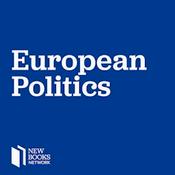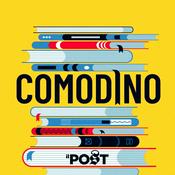568 episodi
- Brussels is full of lobbyists. Over decades, big companies have been using their financial might not only to influence EU policies but even to shape how EU institutions are designed and what their key goals are. Host Licia Cianetti talks to Kenneth Haar, who for almost two decades has been conducting research on corporate lobbying in the EU for Corporate Europe Observatory. Kenneth explains how corporate lobbying works, what lobbyists want, and how a sketchily defined “competitiveness” agenda is driving a far-reaching deregulation drive by the European Commission, which endangers hard fought for environmental, social, health, and labour protections.
Guest: Kenneth Haar is a researcher and campaigner at Corporate Europe Observatory (CEO). His freely downloadable book, A Europe of Capital, details how corporate lobbyists got to the core of the European project. Corporate Europe Observatory is an advocacy and investigative research group. Their many reports, articles, and infographics on corporate lobbying in the EU are available on the CEO website. You can download their alternative tourist guide to Bussels here: “Lobby Planet – Brussels”. CEO’s podcast EU Watchdog Radio is also highly recommended!
Presenter: Licia Cianetti is Associate Professor at the University of Birmingham and Founding Deputy Director of CEDAR.
The People, Power, Politics podcast brings you the latest insights into the factors that are shaping and re-shaping our political world. It is brought to you by the Centre for Elections, Democracy, Accountability and Representation (CEDAR) based at the University of Birmingham, United Kingdom.
Learn more about your ad choices. Visit megaphone.fm/adchoices - Are we living in an era of competing international orders? A new book, entitled Competing Visions for International Order: Challenges for a Shared Direction in an Age of Global Contestation (Routledge, 2025) edited by Ville Sinkkonen, Veera Laine, Matti Puranen addresses the ultimate question.
In this episode of the Nordic Asia Podcast, Prof. Julie Yu-Wen Chen from the University of Helsinki talks to Ville Sinkkonen (Finnish Institute of International Affairs), Matti Puranen (Finnish National Defense University and University of Helsinki), and Bart Gaens (Finnish Institute of International Affairs and the International Centre for Defense and Security) about the ambition of this new book and several key takeaways concerning particularly the US, China, and India from this book.
The book’s analysis also offers normative prescriptions on how to avoid a tragic race to the bottom – a fragmented world of competing orders where states are unable to address shared global crises and challenges such as pandemics, cross-border crime, climate tragedies, and armed conflict. With this, it concludes by recognising the importance of agency as well as political imagination in navigating the crisis-ridden ordering moment of the international system.
This book will be of key interest to scholars and students in global order studies and governance, geopolitics, regional studies, foreign policy analysis as well as more broadly to international relations and security, political history, human geography, and policymakers.
Julie Yu-Wen Chen is Professor of Chinese Studies and Asian studies coordinator at the Department of Cultures at the University of Helsinki (Finland).
The Nordic Asia Podcast is a collaboration sharing expertise on Asia across the Nordic region, brought to you by the following academic partners: Asia Centre, University of Tartu (Estonia), Asian studies, University of Helsinki (Finland), Centre for Asian Studies, Vytautas Magnus University (Lithuania), Centre for East Asian Studies, University of Turku (Finland), Centre for East and South-East Asian Studies, Lund University (Sweden) and Centre for South Asian Democracy, University of Oslo (Norway).
We aim to produce timely, topical and well-edited discussions of new research and developments about Asia.
Learn more about your ad choices. Visit megaphone.fm/adchoices - When it comes to the global challenges posed by climate change and environmental issues, China has been presented both as a source of problems and a provider of solutions. In this episode, we examine the current state of China’s climate and environmental policies with Dr. Hermann Aubié, whose research focuses on China’s climate and air quality governance and its policy relevance for EU-China relations. What is the on-the-ground reality of climate and air quality efforts in China at the moment, and how can the European Union leverage its relationship with China to tackle climate change amidst growing global uncertainty?
Dr. Hermann Aubié is a Senior Researcher at the Center for Climate Change, Energy and Environmental Law at the University of Eastern Finland and is also affiliated to the Center for East Asian Studies at the University of Turku.
Ari-Joonas Pitkänen is a Doctoral Researcher at the Centre for East Asian Studies, University of Turku.
The Nordic Asia Podcast is a collaboration sharing expertise on Asia across the Nordic region, brought to you by the following academic partners: Asia Centre, University of Tartu (Estonia), Asian studies, University of Helsinki (Finland), Centre for Asian Studies, Vytautas Magnus University (Lithuania), Centre for East Asian Studies, University of Turku (Finland), Centre for East and South-East Asian Studies, Lund University (Sweden) and Centre for South Asian Democracy, University of Oslo (Norway).
We aim to produce timely, topical and well-edited discussions of new research and developments about Asia.
Learn more about your ad choices. Visit megaphone.fm/adchoices - Host Licia Cianetti talks to two Russian experts, Vladislav Gorin and Alexandra Prokopenko, about the state of Russian domestic politics today. As Russia’s war of invasion in Ukraine rages on and Russians live under an ever more repressive authoritarian regime, we discuss how we got here: what made the invasion of Ukraine possible, what is keeping Putin in power, how both the regime’s relationship with both the elites and the people has evolved over Putin’s 26 years in power, and what a future Russia without Putin might look like. A transcript of the conversation is available here.
Guests:
Vladislav Gorin is a journalist at the Russian independent media company Meduza, which is based in Riga (Latvia) and has been designated as an “undesirable organisation” by the Russian government. Vladislav hosts a great podcast (in Russian) called Что случилось (What happened). You can find the English language reporting from Meduza here. As it is illegal and unsafe for people in Russia to contribute to Meduza and even share links from independent media sources, Meduza currently survives on donations from people outside of Russia. You can find their donations campaign here.
Alexandra Prokopenko is a fellow at the Carnegie Russia Eurasia Center, and before the full-scale invasion of Ukraine she has worked as a journalist reporting from the Kremlin, as an adviser to the Central Bank of Russia, and at the Higher School of Economics (HSE) in Moscow. Her book From Sovereigns to Servants. How the War Against Ukraine Reshaped Russia’s Elite will be out in English in summer 2026 (it is available to preorder) and it was already published in Russian (here).
Presenter:
Licia Cianetti is Associate Professor at the University of Birmingham and Founding Deputy Director of CEDAR.
The People, Power, Politics podcast brings you the latest insights into the factors that are shaping and re-shaping our political world. It is brought to you by the Centre for Elections, Democracy, Accountability and Representation (CEDAR) based at the University of Birmingham, United Kingdom.
Learn more about your ad choices. Visit megaphone.fm/adchoices Najati Sidqi, "Memoirs of a Palestinian Communist: The Secret Life of Najati Sidqi" (U Texas Press, 2025)
30/01/2026 | 25 minIn the public eye, Najati Sidqi was known as a journalist and writer, a translator of Russian classics, and an outspoken opponent of Nazism. However, Sidqi concealed a critical component of his life from the world and his family. He was an underground activist for the Palestinian Communist Party, a risky and influential pursuit that took him to early Bolshevik Moscow, British courts and prison cells in Palestine, Nazi Germany, intrigue-heavy interwar Paris, and Civil War Spain, Morocco, and Algeria. Throughout his journey, Sidqi continued to write, even as he faced fascism, intense surveillance, active warzones, the death of friends, and exile.
Memoirs of a Palestinian Communist: The Secret Life of Najati Sidqi (U Texas Press, 2025) brings Sidqi’s incredible life and work to light, wryly narrating his international travels, his work as an activist, and his political dealings at a crucial moment for Palestine and the international fight against fascism. Translated from Arabic into English for the first time, it is a riveting firsthand account of an often-overlooked aspect of the history of the global left. Generous supplementary materials make the memoir accessible to students and non-specialist scholars: a preface by Sidqi’s grandson, a foreword by renowned historian Joel Beinin, a translators’ introduction that presents new research on Sidqi’s family history, a map of his travels, and a timeline, as well as a bibliographic essay offering pointers for further research.In this episode, Ibrahim Fawzy sat with Margaret Litvin to talk about The Memoir of Najati Sidqi as a powerful Palestinian life narrative and a groundbreaking collaborative translation project.
Ibrahim Fawzy is an Egyptian literary translator and writer. His interests include translation studies, Arabic literature, ecocriticism, disability studies, and migration literature.
Learn more about your ad choices. Visit megaphone.fm/adchoices
Altri podcast di Arte
Podcast di tendenza in Arte
Su New Books in European Politics
This podcast is a channel on the New Books Network. The New Books Network is an academic audio library dedicated to public education. In each episode you will hear scholars discuss their recently published research with another expert in their field.
Discover our 150+ channels and browse our 28,000+ episodes on our website: newbooksnetwork.com
Subscribe to our free weekly Substack newsletter to get informative, engaging content straight to your inbox: https://newbooksnetwork.substack.com/
Follow us on Instagram and Bluesky to learn about more our latest interviews: @newbooksnetwork
Sito web del podcastAscolta New Books in European Politics, Cime Tempestose - Emily Bronte - Voce del Succubo e molti altri podcast da tutto il mondo con l’applicazione di radio.it
Scarica l'app gratuita radio.it
- Salva le radio e i podcast favoriti
- Streaming via Wi-Fi o Bluetooth
- Supporta Carplay & Android Auto
- Molte altre funzioni dell'app
Scarica l'app gratuita radio.it
- Salva le radio e i podcast favoriti
- Streaming via Wi-Fi o Bluetooth
- Supporta Carplay & Android Auto
- Molte altre funzioni dell'app

New Books in European Politics
Scansione il codice,
scarica l'app,
ascolta.
scarica l'app,
ascolta.







































